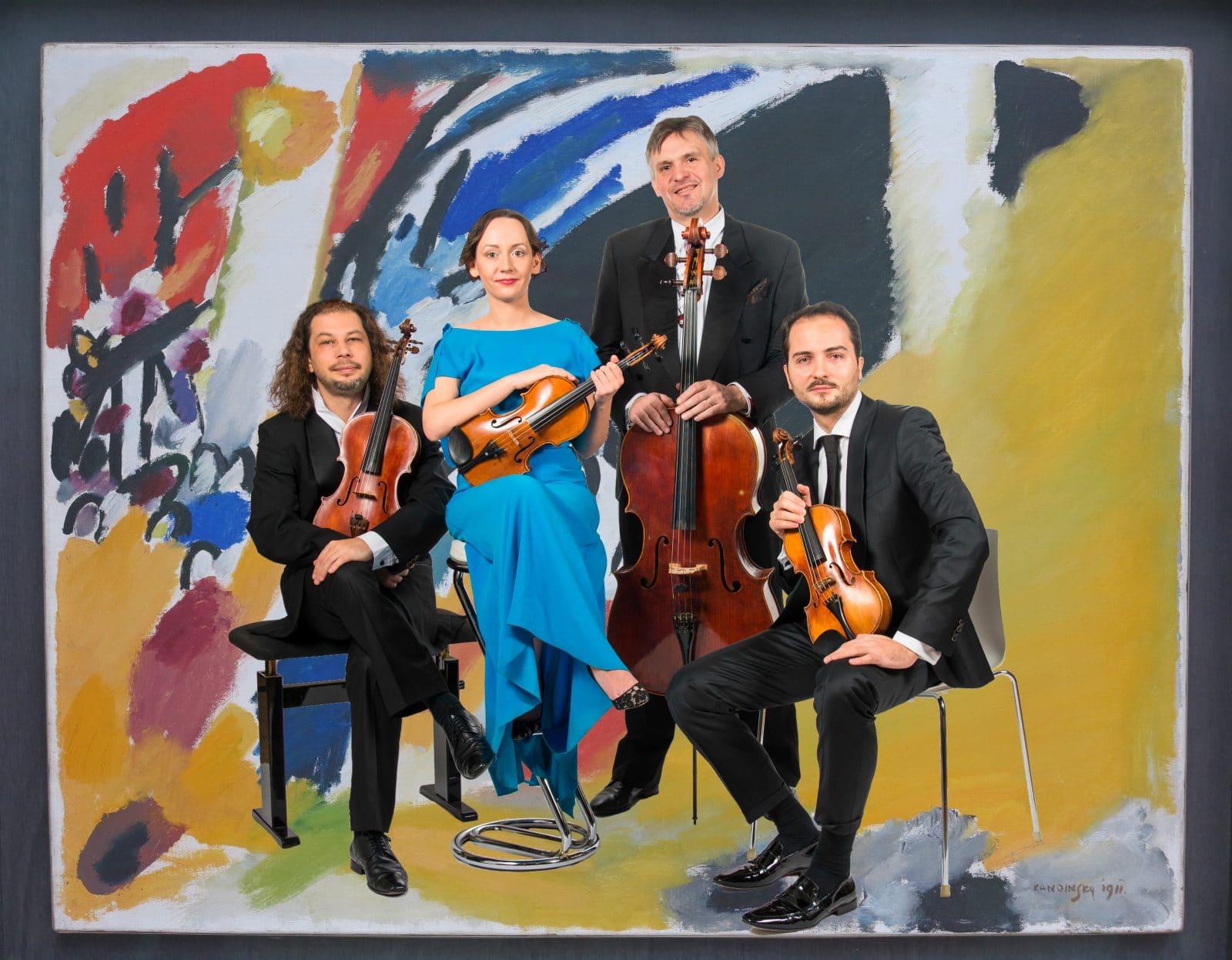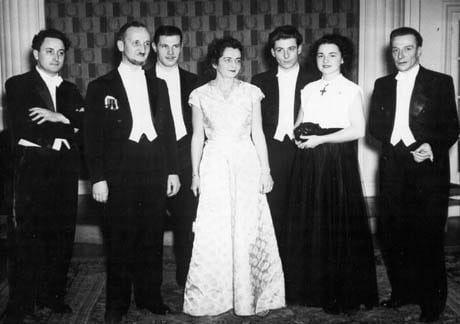In Poland, her name appears on street signs and school buildings, and statues of her can be found in public parks. Grażyna Bacewicz (1909-1969) was the first Polish woman to achieve international success as a composer. Her work can even be found on one of the Royal Concertgebouw Orchestra's CD anthologies. Yet she is still virtually unknown here in the country. Unjustly so, because she wrote powerful music, taking little notice of prevailing fashions.
Nice, then, that it Muziekgebouw aan 't IJ makes a case for Bacewicz. On Friday 28 April, the Great Hall will hear her First Piano Quintet, performed by the Szymanowski Quartet and pianist Kit Armstrong. This American piano talent was only three years old when the renowned quartet was founded in 1995. Extraordinary that Armstrong is hot on this relatively unknown repertoire, as many young musicians eagerly follow the beaten path.

Two years ago, the Szymanowski Quartet reaped success with a performance of Bacewicz's Fourth String Quartet. At the special request of Muziekgebouw aan 't IJ, this time they present their Piano Quintet from 1952. 'That can compete with the great piano quintets of composers like Brahms and Schumann,' says press officer Frans Bernard van Riel. 'The work deserves a stage. We are happy to offer that.'
Labels
Grażyna Bacewicz was given many labels, from neoclassicism to expressionism and from serialism to sonorism. She herself resisted this, never wanting to conform to any movement. According to her, a composer should always look for new ways. 'A progressive composer would not even want to repeat himself,' she said in an interview in 1969.
This is also why she rejected the idea of a distinct musical style that, once found, should be followed. 'That means withdrawing from progress, from development, an idea completely alien to me. Any piece completed today belongs to the past tomorrow. You should not only deepen your performance, but also broaden your view. Although I don't consider myself an innovator, my work is constantly evolving.' - With that, the label stickers could make do.
Musical family
Grażyna Bacewicz was born in Lodz to an artistic Polish-Lithuanian family. Her father was a composer and gave Grażyna piano and violin lessons from the age of five. An older brother also became a composer, a second brother a pianist; her younger sister was a poet. What her mother did remains shrouded in mists.
The young Bacewicz turned out to be a child prodigy: from the age of seven she gave concerts and at 13e she composed her first piece. She studied violin, piano and composition at the Warsaw Conservatory. In 1932, she concluded her studies summa cum laude finished. She then took composition lessons in Paris with Nadia Boulanger.
This pedagogue was also a mentor to such luminaries as Darius Milhaud and Aaron Copland and insisted on structure. Boulanger was averse to the atonal novelty of Arnold Schoenberg and is known as a promoter of neoclassicism. - In short, a style of composition in which recognisable rhythms, melodies and harmonies play a leading role.
This struck a chord with Bacewicz, who remained fascinated by form throughout her life. 'When you build something you don't haphazardly stack bricks on top of each other. The same applies to a composition. Depending on the composer, the music can be simple or complicated, but it must always be well constructed.' Her work from this period is often called neo-classical. Much to her annoyance: 'It is actually atonal,' she wrote about this.

Rain of prizes
Initially, she combined her career as a violin virtuoso with composing. She had an understandable fondness for string instruments and was extremely successful, as a soloist and composer. In Poland, awards rained down from the 1930s onwards. But she also impressed internationally with her varied, always well-structured compositions.
In 1951, for instance, she won first prize in the Liege String Quartet Competition with her exuberant Fourth String Quartet. In 1960, her energetic Music for strings, trumpet and percussion a third prize at the International Rostrum of Composers in Paris. Five years later, her colourful Seventh Violin Concerto (!) won the gold medal at the Queen Elisabeth Competition in Brussels.
Exciting twists and turns
Her 1951 First Piano Quintet is often labelled neo-classicalism. However, this does the atmospheric piece a disservice. It may be in keeping with tradition in its sense of form, but it is quite adventurous within it. Just take the restrained, plaintive string lines against sparsely placed piano chords with which it opens. These are the prelude to a swirling argument in which melancholy, Polish folklore and modern dissonance go hand in hand.
Ethereal, almost weightless passages develop imperceptibly into dense textures and overwhelming climaxes. While Bacewicz changes musical material and atmosphere quickly, her exciting turns keep you constantly on your toes. It is a compelling work and some passages are downright moving. For instance, in the spun-out third movement, there is suddenly a brief reference to the popular piano piece Für Elise Of Beethoven. Bartók's fire is never far away either.
Bacewicz's First Piano Quintet is flanked by pieces by Karol Szymanowski and Antonín Dvořák. By Szymanowski, namesake of the quartet and nestor of Polish music, you will hear the expressionistic First String Quartet. The concert concludes with Dvořák's Second Piano Quintet. A lively composition brimming with beautiful melodies and rhythms borrowed from Czech folk music.
In short, highly recommended. Don't worry if you can't make it on Friday 28 April: the concert will be repeated the next day in TivoliVredenburg.
Programme Szymanowski Quartet and pianist Kit Armstrong:
Szymanowski String Quartet no. 1
Bacewicz Piano quintet no.1
Dvořák Piano quintet no. 2
Info and tickets Muziekgebouw aan 't IJ
Info and tickets TivoliVredenburg
